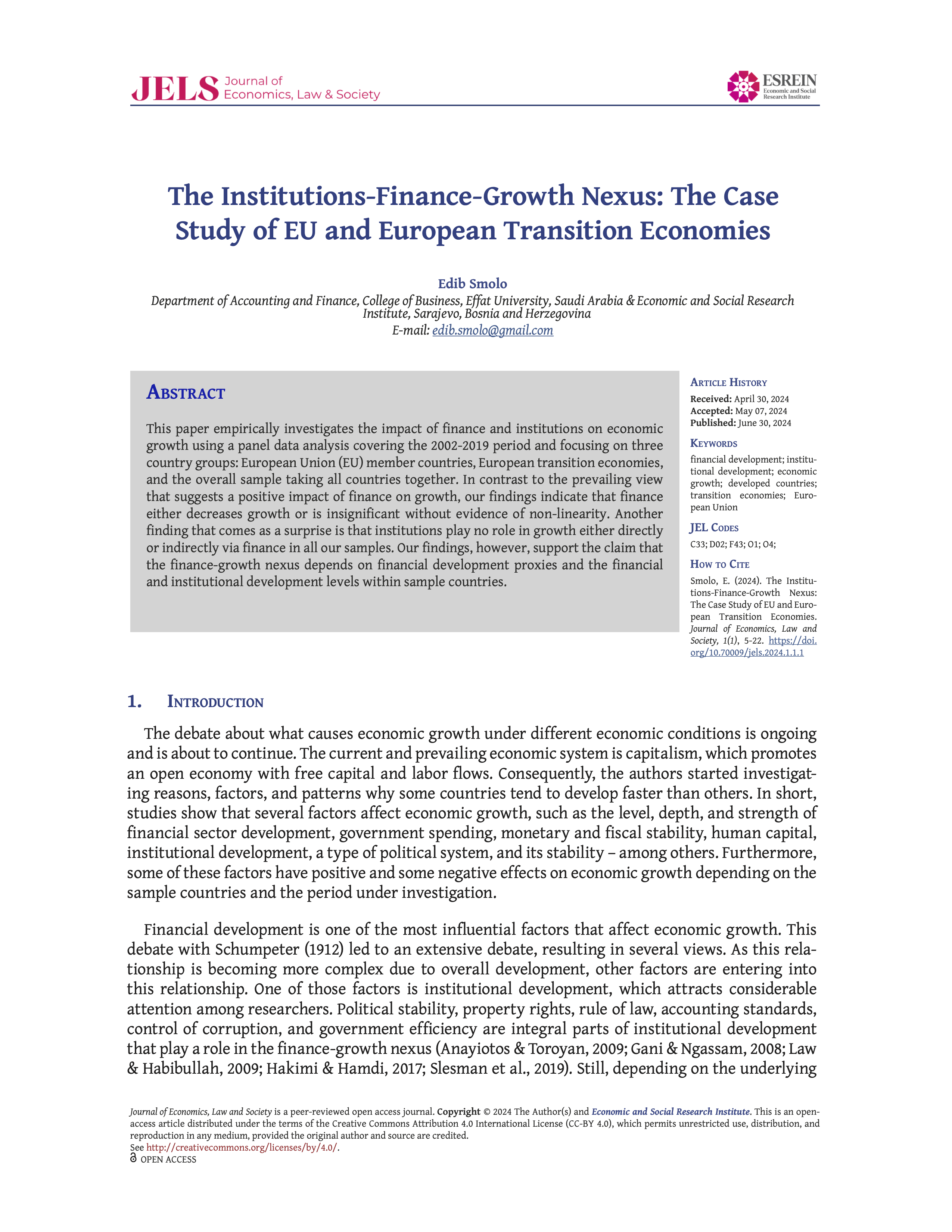The Institutions-Finance-Growth Nexus
The Case Study of EU and European Transition Economies
DOI:
https://doi.org/10.70009/jels.2024.1.1.1Keywords:
financial development, institutional development, economic growth, developed countries, transition economiesAbstract
This paper empirically investigates the impact of finance and institutions on economic growth using a panel data analysis covering the 2002-2019 period and focusing on three country groups: European Union (EU) member countries, European transition economies, and the overall sample taking all countries together. In contrast to the prevailing view that suggests a positive impact of finance on growth, our findings indicate that finance either decreases growth or is insignificant without evidence of non-linearity. Another finding that comes as a surprise is that institutions play no role in growth either directly or indirectly via finance in all our samples. Our findings, however, support the claim that the finance-growth nexus depends on financial development proxies and the financial and institutional development levels within sample countries.

Additional Files
Published
Issue
Section
Categories
License
Copyright (c) 2025 Edib Smolo (Author)

This work is licensed under a Creative Commons Attribution 4.0 International License.





